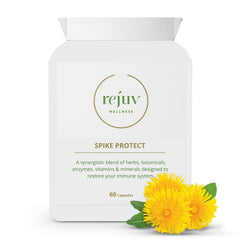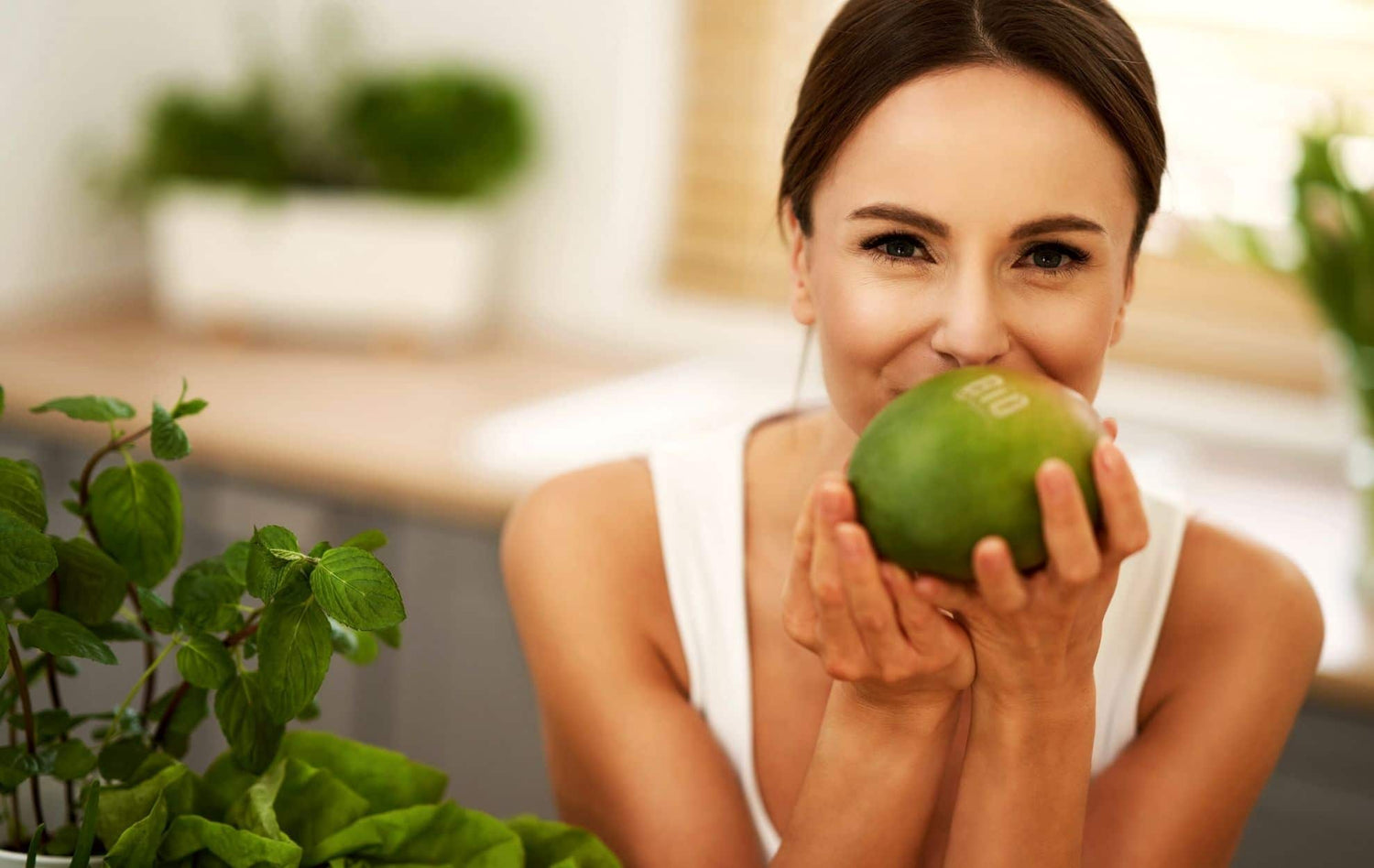Are you searching for natural ways to boost your immune system and reclaim vibrant health? As a board-certified naturopath and nutritionist, I believe the foundation of wellness lies in the synergy of food, botanicals, and science. In this article, I share the latest research and personal insights on three potent botanicals—black nigella seed, sea moss, and nattokinase—that are making waves in holistic wellness. Read on to discover clinical evidence, practical tips, and how these ingredients could help you bounce back to optimum wellbeing.
I have personally added these ingredients to my daily routine and have noticed increased energy, and I haven't caught any colds or flu this past winter. Many of my clients who suffered from long COVID and adverse effects from the spike protein have also experienced their bounce back and feel like they have finally returned to vibrant health.
So let's unpack these three potent botanicals.
1. Black Nigella Seed (Nigella sativa, "The Blessed Seed")
Traditional Wisdom & Modern Promise
Nigella sativa, also known as black seed, black caraway, or "the blessed seed", has been used for centuries in Middle Eastern, Ayurvedic, and Unani medicine. Traditional uses span digestive health, respiratory support, metabolic balance, and immune boosting.
Modern research is now validating many of these uses, particularly in the areas of immunomodulation and anti-inflammation.
Mechanisms & Biological Rationale
- Thymoquinone & volatile oils: The active compounds in black seed, especially thymoquinone, exhibit antioxidant, anti-inflammatory, and immune-modulating properties in cell and animal models.
- Cytokine balancing: N. sativa has been shown to reduce pro-inflammatory cytokines (e.g. TNF-α, IL-6) while upregulating anti-inflammatory pathways.
- Enhanced phagocytic activity and innate immunity: Some studies indicate improved macrophage or neutrophil function in experimental models.
Clinical Evidence & Human Trials
- In a randomised, placebo-controlled, double-blind trial involving healthy volunteers, black seed oil taken for 4 weeks resulted in statistically significant improvements in "general health & immune" metrics compared to placebo.[1]
- Meta-analyses and systematic reviews of multiple RCTs suggest that N. sativa supplementation can modestly lower inflammatory biomarkers (e.g. C-reactive protein) in both healthy and metabolically stressed populations.[2]
- In the context of respiratory viral illness, some RCTs using N. sativa oil in mild COVID-19 patients have shown shortened symptom duration vs control. However, results are not consistent across all trials.[3]
Suggested Use & Safety (for Health-Minded Adults)
- A typical dose used in trials: 500 mg black seed oil (standardised)—twice daily, for 8–12 weeks.
- Monitoring: If you take glucose-lowering or blood pressure drugs, monitor for additive effects.
- Contraindications/Precautions: Avoid use during pregnancy
- Goal: Use as an immune "tonic" and anti-inflammatory support, especially during periods of stress or infection risk.
- Best Source: Whole food and plant-based, as in our Rejuv Spike Protect capsules
2. Sea Moss — Nature's Mineral & Polysaccharide Reservoir
What Is Sea Moss?
"Sea moss" generally refers to red or green seaweeds such as Chondrus crispus and Gracilaria species. These marine algae are rich in:
- Minerals (iodine, magnesium, potassium, trace elements)
- Sulphated polysaccharides (e.g. carrageenan, agar)
- Fibres, phytonutrients, and antioxidants
Traditional coastal cultures have utilised seaweeds as nutritional tonics, incorporating them into soups, broths, and gels.
Immune & Antiviral Potential: Preclinical Insights
- Many in vitro and animal studies show that sulphated polysaccharides from seaweeds can inhibit viral binding or replication (for viruses such as influenza, HSV, etc.).
- Extracts from Chondrus crispus have demonstrated immunostimulatory effects in mice, such as enhanced macrophage activation and upregulation of immune-related genes.[4]
- Reviews of seaweed bioactives conclude that marine polysaccharides may act as immune modulators, antioxidants, and antiviral agents in test systems.[5]
How You Might Use It Safely
- Use food-grade, lab-tested sea moss gel or the dried form (after verifying purity, low heavy metal content, and confirmed species).
- Best Source: Whole food and plant-based, as in our Rejuv Spike Protect capsules
3. Nattokinase — Enzyme from Fermented Soy
What Is Nattokinase?
Nattokinase (NK) is a fibrinolytic (blood-clot–breaking) enzyme derived from natto, a traditional Japanese fermented soybean food. It has attracted attention for its cardiovascular and circulatory benefits. Its utility for "immune"—in the sense of antiviral or immunomodulation—is emerging more from mechanistic hypotheses than confirmed clinical trials.
Biological Rationale & Mechanistic Findings
- Proteolytic action: NK can degrade fibrin clots, thereby supporting healthy blood flow.
- Spike protein degradation (in vitro): In cell studies, NK has been shown to degrade SARS-CoV-2 spike protein fragments, suggesting that it may reduce viral load or virion integrity.[6]
- It is also discussed in recent reviews exploring post-acute COVID approaches, as a component in enzyme therapy strategies.[9]
Clinical Evidence (Cardiovascular Focus)
- Several RCTs and human trials have shown that nattokinase supplementation can improve fibrinolysis markers, lower blood pressure, and aid in maintaining lipid balance.[7]
- A 90-day randomised, double-blind trial in individuals with stable coronary artery disease used NK ± red yeast rice and found favourable safety and modest improvements in cardiovascular biomarkers.[8]
Safety & Use Considerations
- Because NK promotes fibrinolysis, it carries a bleeding risk when combined with anticoagulants, antiplatelet drugs, or in individuals with bleeding disorders. Avoid if you have such pre-existing conditions, and before undergoing surgery or invasive procedures.
- Best Source: Whole food and plant-based, as in our Rejuv Spike Protect capsules
In summary, these three potent botanicals are an excellent addition to your daily routine, especially if your immune system needs some support and if you didn't react well to the COVID-19 vaccines. At Rejuv, we believe in a holistic approach, and when you balance all Seven Pillars of Wellness, you're more likely to feel strong both mentally and physically. If seven pillars seem overwhelming, take our free Wellness Quiz to determine the top three pillars you need to focus on to scale up your health.
As always, food is medicine, and supplements should not replace a balanced diet, good sleep habits, and effective stress management. Always consult your healthcare provider before starting new therapeutic herbs or enzymes, especially if you are taking medications or have underlying medical conditions.
Disclaimer: Information in this article is for educational purposes only and does not substitute for professional medical advice. Please consult your doctor or qualified healthcare provider before making any changes to your supplement or medication routine, especially if you have pre-existing health conditions, are pregnant, or take prescription medications.
References
- Salem A, et al. Effect of Nigella sativa on general health and immune system in young healthy volunteers; a randomized, placebo-controlled, double-blinded clinical trial. 2023.
- Alberts A, et al. Nigella sativa: A Comprehensive Review of Its Therapeutic Potential, Pharmacological Properties, and Clinical Applications. 2024.
- Abdulrahman KAB, et al. Nigella sativa for the treatment of COVID-19: An open-label randomized controlled trial. 2021.
- Liu J, et al. Components of the cultivated red seaweed Chondrus crispus enhance host immunity (preclinical). 2013.
- Lomartire S, et al. An Overview to the Health Benefits of Seaweeds Consumption. 2021.
- Tanikawa T, et al. Degradative Effect of Nattokinase on Spike Protein of SARS-CoV-2. 2022.
- Li X, et al. Nattokinase Supplementation and Cardiovascular Risk Factors: A Systematic Review and Meta-Analysis of Randomized Controlled Trials. 2023.
- Liu M, et al. Nattokinase ± red yeast rice in stable CAD: 90-day randomized, double-blind trial. 2024.
- Hulscher N, et al. Clinical Approach to Post-acute Sequelae After COVID-19 Infection and Vaccination. Cureus. 2023.









